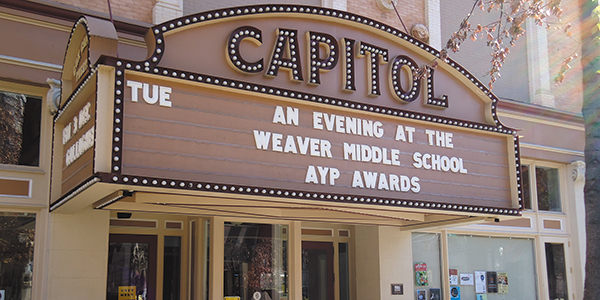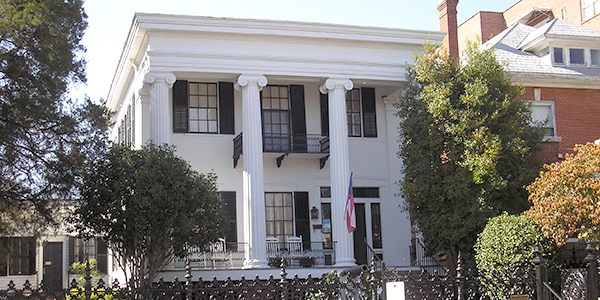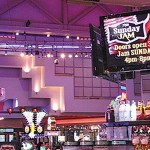Situated in central Georgia is the grand little city of Macon, whose streets were first laid out in 1832. Musical legends and brilliant athletes came from this town, and the city still preserves much of its heritage in compelling museums and halls of fame. Outlying areas are home to ancient history and national parks, and Atlanta is just a short drive away. Come to Macon to take a look at the past and stay to feel the pulse of the present.
Prior to the establishment of the city, the area around the Ocmulgee River—known as the Ocmulgee Old Fields—was inhabited by indigenous tribes as many as 12,000 years before Europeans arrived. Georgia’s ancient history is preserved in pristine fashion at Ocmulgee National Monument.
Planning a visit? Stay at Safe Haven RV Park.
In Ocmulgee rests North America’s only known spiral mound that is still intact. This 20-foot-high earthen structure was built and used by indigenous peoples from 1350 through the 1500s. When the water levels in the Ocmulgee River are low, park rangers provide tours to the mound.
 Spend at least a day in the national park, which houses the monument. You’ll also get to experience Bond Swamp Wildlife Refuge and perhaps learn more about the original inhabitants from the Creek Nation, whose members share their culture and history with visitors through annual celebrations while working to preserve the mounds.
Spend at least a day in the national park, which houses the monument. You’ll also get to experience Bond Swamp Wildlife Refuge and perhaps learn more about the original inhabitants from the Creek Nation, whose members share their culture and history with visitors through annual celebrations while working to preserve the mounds.
The outdoors call to enthusiasts from Lake Tobesofkee Recreation Area, where nearly 1,800 acres of recreational water are available for fishing, boating and swimming. Try your luck hauling in bass, catfish or crappie, or just lay back on one of Lake Tobesofkee’s two public beach parks. The recreation areas offer softball fields, tennis courts and playgrounds for every family member to enjoy.
The history of Macon is well preserved in the homesteads and halls of fame that dot the city. The Cannonball House earned its memorable moniker during the Civil War for damage sustained during battles. Several collections of historic memorabilia are housed here, and tours of the Greek revival home’s garden are equally popular with visitors.
The Hay House, built between 1855 and 1859, remains a stunning example of Italian Renaissance Revival and offers tours as well as private functions. Hay House was built by William Butler Johnston, an entrepreneur who made his money in banking, railroads and public utilities. The house was also owned and preserved by the Feltons and then the Hays, whose patriarch founded an insurance company.
Georgia has produced some of the nation’s most beloved athletes, and their legacies and legends are preserved in the Georgia Sports Hall of Fame. Memorabilia on display pays tribute to such great sportsmen and women as professional baseball player Hank Aaron, boxer Evander Holyfield and golf legend Bobby Jones.
Macon holds a grand appreciation for the arts, and despite its smaller size, it boasts several theaters and museums to delight visitors and residents with a passion for history and technology, as well as song and dance.
Local craftsmanship and creativity are often on display at Macon’s 567 Center for Renewal, a nonprofit organization that hosts live music, gallery exhibits, classes and more. Stop in for a peek at what the city’s native sons and daughters are up to, or try your hand at painting a masterpiece during one of the center’s frequent workshops.
In addition, Macon’s annual Cherry Blossom Festival attracts people from across the globe to see the city’s famous flowers erupt in color every spring.
Macon is home to Mercer University, and Mercer boasts the Grand Opera House, built in 1883. In its heyday, the theater boasted the largest stage in the Southeast. This performing arts center provides theatergoers with a broad range of professional live entertainment and expertly staged plays and musicals. Originally called the Academy of Music, the opera house is a creation of famed theatrical architect W.R. Gunn. After a renovation in 1905, the theater was reopened as the Grand Opera House.
Downtown Macon’s Cox Capitol Theatre is a testament to the community’s decades-long love affair of the theater scene. The 1916 movie house eventually morphed into a multipurpose entertainment venue that today hosts live music for public audiences as well as private events.
Budding actors earn their chops on the Macon Little Theatre stage. This is the place for community plays and musicals, where locals cheer one another on through family-friendly performances and teach the next generation about the arts through camps and workshops.
If you listen closely, you might still hear the strains of jazz and blues echoing inside the walls of Macon’s historic Douglass Theatre, opened in 1921. The theatre has welcomed artists such as James Brown, Little Richard, Ma Rainey and Bessie Smith while also showing feature films. Today, it hosts limited run and premier films as well as live performances. The Douglass Theatre is listed on the National Register of Historic Places.




